Please download our reimbursement form

Dr. Catherine Alix-Panabières received her PhD degree in 1998 at the Institute of Virology, University Louis Pasteur, in Strasbourg in France. In 1999, she moved to Montpellier where she did a postdoctoral research at the University Medical Centre. During this last decade, Dr Alix-Panabières has focused on optimizing new techniques of enrichment, detection and characterization of viable circulating tumor cells (CTCs) in patients with solid tumors. She is the expert for the EPISPOT technology that is used to detect viable CTCs in patients with breast, prostate, colon, head & neck cancer and melanoma. This technology has been recently improved to detect functional CTCs at the single cell level (innovative EPIDROP technology). Drs Catherine Alix-Panabières & Pantel coined for the first time the term ‘Liquid Biopsy’ in 2010 (Trends Mol Med).
In 2010, she achieved getting a permanent position at the Hospital and at the Faculty of Medicine of Montpellier (MCU-PH). As an associate professor, she became the new director of the Laboratory of Rare Human Circulating Cells (LCCRH) in the Department of Pathology and Onco-Biology.
In this unique platform LCCRH, they isolate, detect and characterize circulating tumor cells using combinations many technologies. She organized and co-organized many international meetings on liquid biopsy (3 ISMRC), several major Symposium on liquid biopsy at the AACR, ESMO. She has authored or co-authored >130 scientific publications in this field during the last years and 15 book chapters, she is the inventor of three patents in the liquid biopsy field and she is part of French national projects as well as in many European ones. She has many collaborations in Europe, America and Asia. More importantly, she demonstrated for the first time the clinical utility of CTCs in breast cancer in the French STIC-METABREAST group. Finally, she is the expert in the establishment of permanent CTC lines: in colon and breast cancer.
It was a great honor for her to receive the Gallet et Breton Cancer Prize, the highest honor conferred by the French Academy of Medicine in November 2012 and, very recently, the 2017 AACR Award for the most cited scientific article in 2015 (Cayrefourcq et al. Cancer Res).
In October 2021, she received the International Liquid Biopsy Society (ISLB) Award for her Lifetime Achievement as well as the prestigious Alexandr Savchuk Award in January 2022, during the ‘15ème biennale Monégasque de Cancérologie’, both in consideration of her huge contribution in the field during her career and her commitment in the development of the liquid biopsy research.
In 2022, she was a key partner in the huge exhibition on CANCER led by Prof Alain Eychène, the current Director of Research at the French National Institute of Cancer (INCa). This event takes place at ‘La Cité des Sciences et de l'Industrie’ in Paris. After 12 months in France, this exhibition will travel to different European countries.
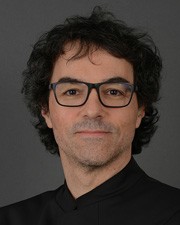
Prof. Fabrice André is a medical oncologist and Director of Research at Gustave Roussy Cancer Center since 2020 where he heads the INSERM U981 Research Unit. His research work in the field of and personalized therapies focuses on biomarker discovery, development of targeted agents and implementation of personalized medicine. Professor André is leading phase I-III trials testing targeted agents in the field of breast cancer and large national trials testing implementation of high throughput technologies in the health care system.
Prof. André is currently President of the European Society for Medical Oncology (ESMO). He has been a member of the Annals of Oncology Editorial Board (2010-2013), Associate Editor since 2014 and in September 2017 became Editor-in-Chief.
In 2021, Prof. André received the Outstanding Investigator Award for Breast Cancer Research from the SABCS and the American Association for Cancer Research (AACR) for his significant contribution to translational and clinical breast cancer research.
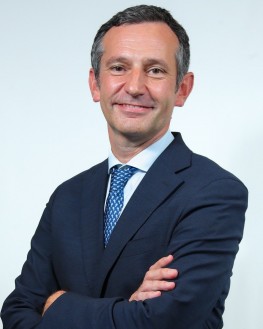
Prof. Benjamin Besse is the Director of Clinical Research at the Gustave Roussy Institute and is Professor of Medical Oncology at Paris-Saclay University, France.
His research interests focus on the application of personalised therapeutic strategies based on molecular abnormalities, circulating biomarkers and early drug development in thymic malignancies and thoracic tumours. Prof. Besse has authored and co-authored over 400 peer-reviewed articles; and is a part since 2020 of the Highly Cited Researchers list of Clarivate.
Previously, Prof. Besse was Chair of the ESMO Consensus Conference on Lung Cancer published in Annals of Oncology and has served as Principal Investigator for over 30 phase I/II clinical trials. Prof. Besse was elected Chair of the European Organisation for Research and Treatment of Cancer(EORTC) Lung Cancer Group from 2014 to 2020 and is currently Chair of the EORTC Scientific Chairs Council. He coordinates the French Network for Thymic Malignancies (RYTHMIC). He is a member of several organisations including the American Society of Clinical Oncology (ASCO), International Association for the Study of Lung Cancer (IASLC), and European Society of Medical Oncology (ESMO). In recognition for his academic work on thoracic malignancies, Prof. Besse has received a Hubertus-Wald Award in 2022.

BioMed
Joanna Budna-Tukan graduated with a degree in Molecular Diagnostics in Biotechnology. During her PhD studies she focused her efforts on unveiling immune suppression in the microenvironment of lung cancer. She is Head of the Immunology Department and Vice Dean for Science at Poznan University of Medical Sciences. She leads the way in liquid biopsy research. Her newly launched team is focused on developing a multimarker approach for solid tumors, building on her experience with the international Transcan consortia CTC-SCAN and PROLIPSY. Her contributions to these consortia have resulted in further grants, publications, and ongoing projects in collaboration with ELBS members. She served as principal investigator in four research projects related to liquid biopsy and the development of rapid tools in cancer diagnosis.
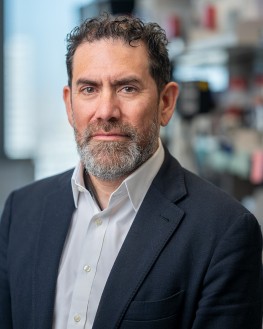
Dr. Luis Diaz is a physician-scientist who leads the Division of Solid Tumor Oncology at Memorial Sloan Kettering Cancer Center. His early work provided the first definitive evidence for using circulating tumor DNA as cancer biomarker for screening, monitoring, and detection of occult disease; and he discovered the therapeutic link between immunotherapy and cancer genetics in patients with mismatch repair deficient tumors. This research led to the first pan-tumor FDA approval for any solid tumors with this genetic lesion and the first cancer study that resulted in a 100% complete response rate. He is the Editor-in-Chief of Cancer Discovery and is an elected member of the AACR Fellows Academy, the American Society of Clinical Investigation, and the American Academy of Physicians. In 2021, Dr. Diaz was appointed by President Joseph Biden to the National Cancer Advisory Board.

Yuval Dor, PhD, is a professor of biology at the Hebrew University Faculty of Medicine in Jerusalem, Israel. He earned his PhD in vascular biology at the Hebrew University with Eli Keshet, and trained as a post-doc at Harvard University with Doug Melton until 2004. He studies the molecular mechanisms by which cells regenerate and die. Much of his work focuses on beta-cells, most recently in the context of islet inflammation in early stage type 1 diabetes. He has also developed a novel blood test to study cell death in humans, using methylation signatures of cell-free circulating DNA.
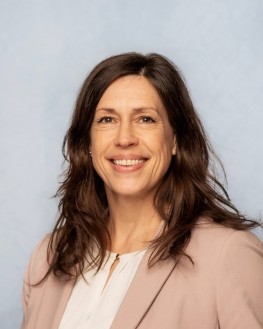
Janine Erler is a Professor and Group Leader at BRIC, University of Copenhagen, and CEO of NEUmiRNA Therapeutics. She graduated as BSc with Honours in Molecular Genetics in Biotechnology from the University of Sussex (UK) in 2000 and was awarded a PhD in Molecular Pharmacology from the University of Manchester (UK) in 2003 for her research on hypoxia-regulated resistance of cancer cells to chemotherapy. Between 2004 and 2008, Janine was a postdoctoral training fellow at Stanford University (USA), where she started working on hypoxia-regulated metastasis. She then started her own independent research group in 2008 at the Institute of Cancer Research in London (UK). Janine moved her lab to BRIC (University of Copenhagen, DK) in 2012 and became a tenured full Professor in 2016. She has received numerous awards for her research, and has filed two patents and started two companies. Her research is focused on how the tumour microenvironment drives metastasis. In particular, Janine has pioneered research into extracellular matrix remodelling during cancer progression. She established precision medicine in Denmark for patients with metastatic cancer, in collaboration with her clinical partner, Professor Ulrik Lassen. Janine’s focus, both at BRIC and at NEUmiRNA, is on interdisciplinary translational research.
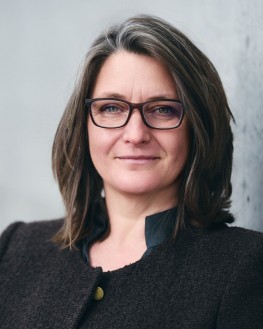
Professor Karen-Lise Garm Spindler received her medical degree from Aarhus University, and trained as a specialist oncologist at Vejle Hospital, Denmark, and St. James Institute of Oncology, Leeds, UK. During her training she obtained the PhD degree from the University of Southern Denmark, where she completed her thesis titled The Epidermal Growth Factor Receptor in Colorectal Cancer. She later earned the higher Doctorate of Medical Science (DMSc) degree from Aarhus University with the doctoral thesis Clinical Utility of Tumor-Specific Mutations and Circulating Nucleic Acids in Plasma from Patients with Metastatic Colorectal Cancer. Dr. Spindler currently serves as a consultant oncologist at the Department of Oncology, Aarhus University Hospital, DK overseeing treatment, research, and development in gastrointestinal cancer. In 2017, she was appointed Professor in Clinical Oncology, focusing on advancing precision therapy for gastrointestinal cancers. She has established a fruitful research environment emphasizing clinical and translational studies in both medical and radiation oncology, particularly on the clinical application of liquid biopsies. As co-founder and former vice-chair of the Danish Comprehensive Cancer Center National Research Center for Circulating Tumor DNA (ctDNA.dk), she contributes to implementing liquid biopsies in clinical trials. She supervises multiple PhD students working on cell-free DNA studies and leads the ctDNA-RECIST program, aimed at integrating ctDNA into response evaluation criteria in medical oncology. She has also served as Chair of the Danish Cancer Society Scientific Board and as member of the Institutional Review Board until 2024. Professor Spindler actively participates in various European scientific societies.

Sapienza University of Rome
Prof. Paola Gazzaniga (MD, PhD) is the Chief of the Liquid Biopsy Unit of the Department of Molecular Medicine, Sapienza University of Rome. She is full professor in precision oncology with a strong commitment to academic duties. She started her career in oncological research applying at the study of HPV and cancer at Deutches Krebsforshungzentrum, under the supervision of Prof. Harald zur Hausen. Back to Italy she started working on cancer biomarkers in blood samples. Long before the advent of the liquid biopsy, she was the first to propose a test for EGFR analysis in peripheral blood (Clin. Cancer Res., 7; 577-583, 2001). When the promise of liquid biopsy became a more solid clinical perspective, she equipped her laboratory with different instruments for the enrichment, detection and characterization of circulating tumor cells and ctDNA . She leads a highly motivated group dedicated to the translation of major achievements in the field of liquid biopsy into concrete tools for cancer patients management. She is involved in the study of the mechanisms underlying the clonal evolution of solid tumors through liquid biopsies, with the following aims: 1) identification of predictive biomarkers to targeted therapies and immunotherapies in circulating tumor cells 2) early identification of the onset of drug resistance 3) identification of new therapeutic targets. Through national and international collaborations, she is involved in several pilot and phase 2 studies aimed to definitely integrate liquid biopsies into clinical practice. Her work in this field is attested by the collaborative works and publications with national and international groups involved in liquid biopsy- guided trials, published in high impact journals. She has authored or co-authored > 110 scientific publications in this field and several book chapters.
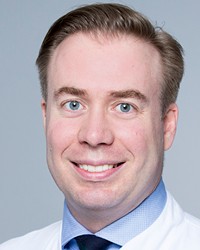
Prof. Christoffer Gebhardt heads the University Skin Cancer Center Hamburg at the University Medical Center Hamburg-Eppendorf (UKE) and serves as Vice Chair of the Department of Dermatology. Additionally, he co-chairs the Fleur Hiege Center for Skin Cancer Research at the UKE.
His main areas of activity are clinical treatment and research of malignant melanoma and other forms of skin cancer with a focus on immunotherapy as well molecular diagnostics. His research interests span from mechanistic insights into immuno-resistance and metastasis of skin cancers to omics-driven identification of biomarkers and design of biomarker-driven clinical trials with the ultimate goal to revolutionize skin cancer patients’ care by modern diagnostics and therapeutics.
He studied medicine at the University of Heidelberg and at the University of Aberdeen (Scotland) and the M.D. Anderson Cancer Center, Houston (USA). After completing his doctorate and postdoctorate at the German Cancer Research Center (DKFZ) in Heidelberg and clinical training at the University Hospital Heidelberg, he became a senior physician/board-certified dermatologist at Mannheim University Hospital and a research group leader at the DKFZ. In 2017 he was appointed University Professor of Dermatooncology and Experimental Dermatology at the UKE.
Prof. Gebhardt is a board member of the Dermatological Oncology Working Group (DeCOG/ADO) within the German Cancer Society (DKG) and has served as board member of the German Society of Experimental Dermatology (ADF). He is also an executive board member of the Hiege Foundation - The German Skin Cancer Foundation and the Erich and Gertrud Roggenbuck Foundation. Prof. Gebhardt has co-founded Dermagnostix and Dermagnostix R&D.

Dr. Simon Heeke is the head of the Liquid Biopsy Translational Working Group and Assistant Professor in the Department of Thoracic Head & Neck Medical Oncology at the MD Anderson Cancer Center in Houston, Texas. He received his BSc and MSc degree (with distinction) in Molecular Medicine from the Medical University in Innsbruck, Austria, followed by a PhD in Cell Biology from the University Côte d’Azur in Nice, France. His research focuses on oncogene-driven lung cancer (such as with ALK, RET or EGFR alterations), lung cancer interception, small cell lung cancer subtypes and adenoid cystic carcinoma, and the development of associated tissue and liquid biopsy-based biomarkers through the integration of multimodal data and the use of machine learning methods for clinically applicable predictive models. He has contributed to >60 peer reviewed publications published in various high impact journals, including CA:A Cancer Journal, Nature, Cancer Cell, Annals of Oncology, JCO and JTO. Furthermore, he serves as co-chair of the NIH Liquid Biopsy Scientific Interest Group and co-leads the module on Novel Technological Development of the European Master’s in Molecular Pathology.

An Hendrix is full professor at Ghent University and group leader at Cancer Research Institute Ghent in Belgium. She obtained a Master of Science in Bioscience Engineering (2005) and a PhD in Health Sciences (2010). An Hendrix is organizer of the EMBO/EMBL practical course Extracellular vesicles: from biology to biomedical applications, president of the Belgian Society of Extracellular Vesicles (BESEV) and board member of the International Society for Extracellular Vesicles (ISEV) and European Liquid Biopsy Society (ELBS). During the ISEV2021 meeting she was awarded the Early/Mid-Career Investigator award for her seminal work on EVs providing a supportive ecosystem for their clinical application, including development of the EV-TRACK knowledgebase, SOP for the analysis of EVs in liquid biopsies and reference materials.
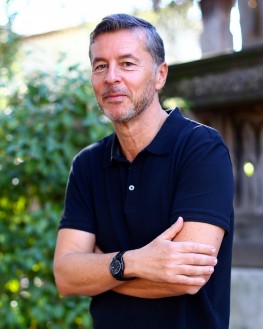
Paul Hofman, MD, PhD, is Professor of Pathology at the University Côte D’Azur (Nice, France). He is the head of the Laboratory of Clinical and Experimental Pathology at Louis Pasteur Hospital and director of the research team 4 (Inserm U1081/CNRS 7284 center) at the comprehensive cancer center Antoine Lacassagne. He is the director of the MSc Biobanks and Complex Data Management. He is the head of the OncoAge consortium (www.oncoage.org) at the University Côte d’Azur. His main field of interest during these last years focused on lung cancer pathophysiology, and notably on the assessment of different predictive biomarkers using both tissue and liquid biopsy samples.
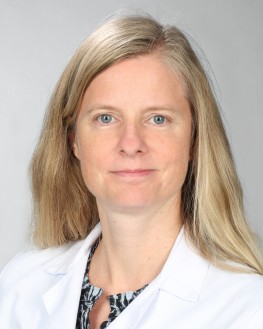
Prof. Sonja Loges studied biochemistry and molecular biology at the University of Hamburg where she received her PhD in 2004. She also studied medicine at the University Medical Center Hamburg and graduated as MD in 2005. Sonja Loges performed her postdoctoral research in the lab of Prof. Peter Carmeliet at VIB-KU Leuven, Belgium focusing on tumor-microenvironment interactions and angiogenesis. Thereafter she returned to the University Medical Center in Hamburg and obtained funding by the German Cancer Aid for her independent group in the Max-Eder program. She completed her residency and board exams in hematology, oncology and internal medicine and became senior physician in 2015. She was leading the thoracic oncology and precision oncology programs in Hamburg and became full Professor funded by the Heisenberg program of the Deutsche Forschungsgemeinschaft in 2016. In 2018 she received an ERC Starting Grant focused on MRD elimination in solid and heme malignancies.
2020 Sonja Loges was appointed manging director of the DKFZ-Hector Cancer Institute and Chair of the Department for Personalized Oncology, University Medical Center Mannheim, University of Heidelberg as well as head of the Division of Personalized Medical Oncology at the German Cancer Research Center in Heidelberg in 2020. In 2021 she additionally took over the position of Scientific Director of the newly founded Mannheim Cancer Center (MCC) in Mannheim. She is member of the metastatic NSCLC faculty and of the precision medicine working group as well as co-chair of the ESMO-industry strategic forum.
In precision- and thoracic oncology, she is conducting Phase 1-3 clinical trials and coordinating circular translational research programs with a focus on targeted therapies and liquid biopsies with the goal of overcoming resistance and providing personalized treatment to patients.

Rafael López López is the Head of the Oncology Department at the University Clinical Hospital of Santiago de Compostela (Spain), Director of the Translational Oncology Group at the Health Research Institute (IDIS), and Coordinator of the Cancer Area at the same institution (www.oncomet.es). He is also Professor at the Faculty of Medicine at the University of Santiago de Compostela. He earned his Medical Degree from the Autonomous University of Madrid. In 1988, he completed his training as a specialist in Medical Oncology at the General Hospital of Asturias. He was accredited by the European Society for Medical Oncology (ESMO) in 1989. He was an ESMO Fellow at the Free University Hospital of Amsterdam (Prof. HM Pinedo) in 1990 and 1991. He has worked at the Central Hospital of Asturias (Oviedo), the Hospital of Navarra (Pamplona), and founded and developed the Medical Oncology Department at the Txagorritxu Hospital (Vitoria). Since 1997, he has led the Medical Oncology Department in Santiago de Compostela.
He is deeply involved in research, having led over 150 clinical trials as the principal investigator. He is responsible for translational research in solid tumors, particularly breast and gastrointestinal cancers. He is currently working on research projects aimed at understanding and treating the metastatic process. His group is leader in liquid biopsy in Spain, with strong research and clinical capabilities. He has been a speaker in the Cancer Strategy of the Ministry of Health. Dr. López is a member of ASEICA (Spanish Association for Cancer Research), EACR, ESMO, the Spanish Society of Medical Oncology (SEOM), the American Society of Clinical Oncology (ASCO), and the American Association for Cancer Research (AACR). He was also the President of the Galician Society of Cancer, during which time the Galician Cancer Strategy was developed in collaboration with the Health Service of Galicia. He is the author of over 200 publications and book chapters, both national and international, and has presented research at national and international congresses. He has participated in more than 10 patents and 2 spin-offs. He served as president of the ECO Foundation (Excellence and Quality in Oncology) in 2021 and 2022 and is currently the vice president. Actually he is the President of ASEICA.
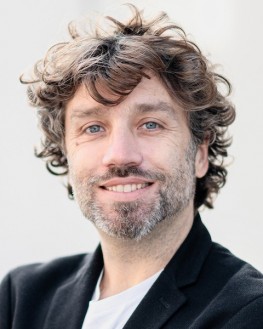
Scientist, entrepreneur, policy advisor and engineering professor passionate about AI for health. Miguel is co-founder and CEO of Spotlab.ai a frontier AI lab working on biopharma research and diagnostics. He is professor at the doctoral school of the Universidad Politecnica de Madrid. Miguel is the former first Chief Data Scientist of the United Nations where he worked for a decade in the Executive Office of the UN Secretary General on AI for humanitarian response and global health. Dr. Luengo-Oroz has co-authored over a hundred multidisciplinary scientific articles, policy briefs and op-eds about applications and ethics of AI. He advises organizations on strategies to navigate macro trends and build responsible AI for humanity and the planet. Miguel has received a number of awards: Ashoka fellow, Obama Foundation fellow, EU responsible research and innovation award, MIT Technology Review social innovator of the year, Caixa fellow. He holds a PhD & MSc.Eng from Universidad Politécnica de Madrid and a MSc from Ecole des Hautes Etudes en Sciences Sociales de Paris.

Umberto Malapelle, PhD, is currently the Chair of Predictive Molecular Pathology Laboratory, Department of Public Health of University Federico II of Naples. His main research interest is in the field of genomic biomarkers validation and testing for predictive information in the field of lung cancer, metastatic colorectal cancer, melanoma, breast and gastrointestinal stromal tumor.
Moreover, he has developed skills in tailoring Next Generation Assays for a number of different applications with a special focus on the simultaneously detection of clinical relevant alterations (i.e., EGFR mutations, ALK traslocation, PD–L1 expression) in the routine setting including handling of different sample types, such as tissues and/or liquid biopsy specimens.
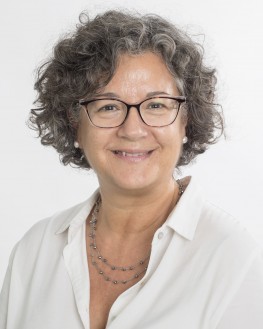
Núria Malats, MD, MPH, PhD, heads the Genetic and Molecular Epidemiology Group at the Spanish National Cancer Research Centre (CNIO), Madrid, Spain. Her research focuses on pancreatic and bladder cancers. She coordinates and participates in large national and international studies by integrating different levels of information, including omics data, in both cancer development and progression by applying AI approaches. Dr. Malats has >300 publications. Dr. Malats chaired the EUPancreas COST Action (BM1204) with >250 members, and she is now chairing ALIPANC (https://alipanc.org/en/), and the Research Work Stream of PCE (https://pancreaticcancereurope.eu).

Education and career:
1991 Graduated from the Medical College of Oita
1991 Dept of Surg II, Kyushu University (Resident)
1994 Dept of Surg, Medical Institute of Bioregulation Kyushu University (Research Fellow)
1997 Medical Doctor, PhD authorized by Kyushu University
1997 Kimmel Cancer Inst, Thomas Jefferson Univ., Philadelphia (Research Fellow)
2000 Dept of Surg, Medical Institute of Bioregulation Kyushu University (Research Associate)
2011 Dept of Surg, Kyushu University Beppu Hospital (Associate Professor)
2012 Professor of the Dept of Surg, Kyushu University Beppu Hospital
2023 Director of Kyushu University Beppu Hospital - At present.
Japan Agency for Medical Research and Development (Program Officer)
Certification:
Instructor and Specialist, certified by the Japanese Society of Surgery
Instructor and Specialist, certified by the Japanese Society of Gastroenterological Surgery
Certified Physician, certified by the Japanese Society of Breast Cancer
Membership:
Japanese Cancer Association (Board)
Japanese Society of Surgery (Council 25th District)
Japanese Society of Gastroenterological Surgery (Board)
The Japanese Society for Gastrointestinal Carcinogenesis (President of the Board)
The Japanese Association for Metastasis Research (Board)
American Association of Cancer Research (USA) (Active member)
Journal Contribution:
Associate Editor; Cancer Science (Japan)
Deputy Editor-In Chief; Annals of Gastroenterological Surgery (Japan)
Awards:
Incitement Award of the Japanese Cancer Association (2004)
Young Researcher’s Award, Ministry of Education, Sci. and Technol in JPN (2006).
Prize for encouragement in Research by the Japan Medical Association (2011)
The Ohara Prize the Japanese Society for Gastroenterological Carcinogenesis (2018)
The Annals of Gastroenterological Surgery Award (2019)
The Takeda Foundation Award (2020)
Takashi Tsuruo Award, The Japanese Association for Molecular Target of Cancer (2022)

Clara Montagut is Head of the Gastrointestinal Cancer Unit and leads a team of clinical and translational research in precision medicine in colorectal cancer at Hospital del Mar Medical Oncology Department and Research Institute in Barcelona, Spain. Dr Montagut is also Professor at the Pompeu Fabra University in Barcelona.
Clara Montagut graduated in Medicine and Surgery from the Universitat Autònoma de Barcelona (1999) and obtained her specialization in Medical Oncology at Hospital Clínic de Barcelona (2004). She completed her training at the Massachusetts General Hospital Cancer Center - Harvard School of Medicine in Boston (J. Settleman lab). On her return from the United States in 2009, she defended her doctoral thesis on resistance to targeted therapy in cancer (Universitat de Barcelona, excellent cum laude) and joined the Medical Oncology Department at Hospital del Mar in Barcelona. In 2017-2018 she did a fellowship at Memorial Sloan Kettering Cancer Center, New York, on liquid biopsy in gastrointestinal malignancies (L.A. Diaz lab).
Dr. Montagut is leading and has participated in a large number of national and international trials in gastrointestinal cancer, has more than 100 publications in prestigious top journals, and 2 licensed patents. Dr. Montagut is faculty member of the Scientific Committee of the European Society of Medica Oncology, as well as the board of directors of the Spanish group of digestive tumors (TTD). She is the former President of the Scientific Committee for evaluation of national grants from the Spanish Ministry of Health (ISCiii) and coordinator of Health area of the Catalan Agency of University Grants (AGAUR).

Dr. Nicola Normanno was Director of the Cell Biology and Biotherapy Unit of INT Fondazione “G. Pascale” from 2005 to April 2024, and from 2006 to April 2024 also Chairman of the Translational Research Department of the same institute. From April 15 2024, Dr. Normanno is the Scientific Director of IRST, the Istituto Romagnolo per lo Studio dei Tumori “Dino Amadori” IRCCS. Dr. Normanno leads a research group involved in both pre-clinical and clinical studies, with particular regard to the identification of biomarkers associated with sensitivity/resistance to target-based agents in clinical development. Dr. Normanno’s group has been one of the first to use next generation sequencing (NGS)-based techniques for biomarkers discovery in clinical trials in lung and colon carcinoma. His group has also a relevant expertise in liquid biopsy. Dr. Normanno is also involved in clinical diagnostics and in the organization of national and international external quality assessment (EQA) schemes in molecular pathology. Dr Normanno is a member of many national and international cancer research associations (AACR, ESMO, EACR, AIOM, SIC, GOIM, AIOT). He is President of the International Quality Network for Pathology (IQN Path) and Past President of the Italian Cancer Society (SIC). Dr. Normanno is author of more than 300 publications in peer-reviewed journals and he is a reviewer for many scientific journals.
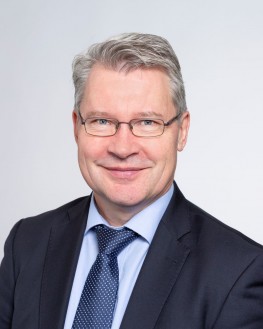
Prof. Klaus Pantel is chairman of the Institute of Tumor Biology at the University Medical Center Hamburg-Eppendorf. He graduated in 1986, and after his postdoctoral period in the USA he performed research at the Institute of Immunology, University of Munich for 10 years. The pioneer work of Prof. Pantel in the field of cancer micrometastasis, circulating tumor cells and circulating nucleic acids is reflected by more than 550 publications in excellent high ranking biomedical and scientific journals and has been awarded the AACR Outstanding Investigator Award 2010, German Cancer Award 2010, and two ERC Advanced Investigator Grants 2011 and 2019. Moreover, Prof. Pantel is the founder and chairman of the European Liquid Biopsy Society (ELBS).
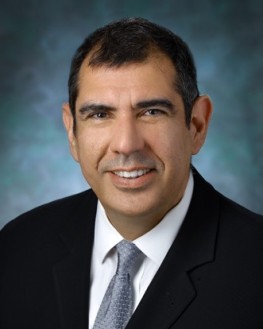
Nickolas Papadopoulos is the co‐discoverer of the genetic basis of the predisposition to hereditary nonpolyposis colon cancer (HNPCC). He was part of the interdisciplinary team that was first to sequence all of the protein coding genes of four common human tumor types. Later identified novel mutations in chromatin remodeling genes in human cancers. He is focused in the development of clinical applications in early detection, and monitoring of cancer using liquid biopsy. He has developed novel methods and tests for the non-invasive detection of multiple types of cancer, including CancerSEEK. He has co-founded companies that develop diagnostics for cancer.

Jean-Yves Pierga has been Professor of Medicine and Medical Oncology at Université Paris Cité since 2005. He headed the medical oncology department at the Institut Curie Cancer Center in Paris from 2014 to the end of 2023. He is currently coordinator of the educational program for residents in medical oncology for Paris area and treasurer of the French College of Oncology Teachers. His main research interests include breast cancer treatments, early clinical trials and transfer research. He is a member of the Circulating Tumor Biomarkers laboratory team at the Institut Curie (INSERM CIC-1428). He has contributed to over 360 peer-reviewed publications. He is a member of the Société Française de Cancérologie (SFC), the European Society of Medical Oncology (ESMO), the American Society of Clinical Oncology (ASCO), the Breast Cancer Group of the EORTC, the American Association for Cancer Research (AACR), the European Liquid Biopsy Society (ELBS) and a former vice-president of the Unicancer Breast Group (UCBG).

Dr. Nitzan Rosenfeld is a leader and pioneer of the field of cancer liquid biopsies. He trained in Physics and Systems Biology before leading a Computational Biology team in a biotech company. His research group at the CRUK-Cambridge Institute develops methods and proof-of-concept applications of liquid biopsies for cancer precision medicine. Their work was recognised by multiple academic awards. In 2014 he co-founded Inivata (now a part of NeoGenomics), a cancer genomics company unlocking liquid biopsies to transform the care of cancer patients. Dr Rosenfeld’s trainees and lab alumni have taken on research and leadership roles throughout the liquid biopsy community.

Dr. Carolin Sauer is a postdoctoral MSCA research fellow and joined the Cancer Genomics group at the EMBL-EBI, Cambridge, UK in 2022.
In addition, she currently is a postdoctoral affiliate at Newnham College, and Bye-Fellow and College Teaching Associate at Downing College, Cambridge. Prior to this, Carolin completed her PhD at the Cancer Research UK Cambridge Institute, University of Cambridge, after obtaining her BSc (Hons) Biology from the University of Manchester, UK.
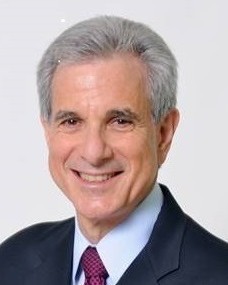
Howard I. Scher, MD, FASCO,D. Wayne Calloway Chair in Urologic Oncology,has dedicated his career to the co-development of targeted therapies and biomarkers such as circulating tumor cells (CTCs) which can be used to assess treatment efficacy, guide treatment selection for the individual patient and improve the way drugs are evaluated in the clinic, accelerating regulatory approvals. During his 25-year tenure as the Chief of the Genitourinary Oncology Service at Memorial Sloan Kettering Cancer Center (MSKCC) he led international efforts to standardize the design and analysis of phase II prostate cancer trials (PCWG2, PCWG3) and helped elucidate key molecular and genetic features of the disease, translating these insights into the clinic by leading early phase and phase III registration trials of abiraterone acetate and enzalutamide which are now FDA approved.
In his current roles—Head of MSKCC’s Biomarker Development Program; Member and Attending Physician, Genitourinary Oncology Service, Department of Medicine at MSKCC; and Professor of Medicine at the Weill Cornell Medical College—Dr. Scher applies the same principles used in developing drugs to blood and imaging-based biomarkers in a regulatory context to better inform diagnostic and therapeutic decisions so that patient outcomes are improved.
Dr. Scher serves as the principal investigator of the NIH Specialized Program of Research Excellence (SPORE) in Prostate Cancer at MSKCC and the Department of Defense-sponsored Prostate Cancer Clinical Trials Consortium (PCCTC), and has received the 2015 AACR Team Science Award for his multidisciplinary work developing AR inhibitors, the Donald S. Coffey-Prostate Cancer Foundation Physician Scientist award and the Chemotherapy Foundation Ezra Greenspan Award. Dr. Scher was elected to the Association of American Physicians and named a Fellow of the American Society of Clinical Oncology (ASCO).

Dr. Lillian S. Siu is a senior medical oncologist at Princess Margaret Cancer Centre, and is a Professor of Medicine at the University of Toronto. She is the Director of the Phase I Trials Program, co-leads the Tumor Immunotherapy Program and holds the BMO Chair in Precision Genomics. Dr. Siu had served on the Board of Directors of both the American Society of Clinical Oncology (ASCO) and the American Association for Cancer Research (AACR). She is a fellow of ASCO, AACR and the Canadian Academy of Health Sciences (CAHS). Dr. Siu is the 2024-2025 President-Elect of the AACR. Dr. Siu’s major research focus is in the area of new anticancer drug development, with respect to phase I trials and head and neck malignancies. Internationally, Dr. Siu was the recipient of the US National Cancer Institute’s Michaele C. Christian Award in 2010, European Society of Medical Oncology’s Targeted Anticancer Therapies (TAT) Honorary Award in 2020, Canadian Cancer Trials Group’s Maria Ricci Memorial Lectureship in 2023, and ASCO’s highest honor - David A. Karnofsky Memorial Award in 2024. In 2020, Dr. Siu received the International Women Who Conquer Cancer Mentorship Award from ASCO. Dr. Siu has published nearly 400 peer-reviewed manuscripts, and she is the co-Editor-in-Chief for AACR’s Cancer Research Communications, and is on the editorial board for Cell and Cancer Cell.

Charles Swanton completed his MBPhD training in 1999 at the Imperial Cancer Research Fund Laboratories and Cancer Research UK clinician scientist/medical oncology training in 2008. He is a senior Principal Investigator and of the Cancer Evolution and Genome Instability Laboratory, and Deputy clinical director at the Francis Crick Institute. He combines his research with clinical duties at UCLH as a Consultant thoracic oncologist, focussed on how tumours evolve over space and time. His research branched evolutionary histories of solid tumours, processes that drive cancer cell-to-cell variation in the form of new cancer mutations or chromosomal instabilities, and the impact of such cancer diversity on effective immune surveillance and clinical outcome. Charles is chief investigator of TRACERx, a lung cancer evolutionary study, the national PEACE autopsy program, and the TRACERx EVO study.
Charles was made Fellow of the Royal College of Physicians in April 2011, appointed Fellow of the Academy of Medical Sciences in 2015, awarded the Royal Society Napier Professorship in Cancer in 2016, appointed Cancer Research UK’s Chief Clinician in 2017, elected Fellow of the Royal Society in 2018, Fellow of the Academy of the American Association for Cancer Research in 2020, and appointed Deputy Clinical Director of the Francis Crick Institute in 2023. In 2016 he co-founded Achilles Therapeutics, a UCL/CRUK/Francis Crick Institute spin-out company, assessing the efficacy of T cells targeting clonal neoantigens.
Charles has been awarded several prizes including Massachusetts General Hospital, Jonathan Kraft Prize for Excellence in Cancer Research (May 2018), the ESMO Award for Translational Cancer Research (2019), the Weizmann Institute Sergio Lombroso Award in Cancer Research (2021), the Memorial Sloan Kettering Paul Marks Prize for Cancer Research (2021), UCLH Celebrating Excellence Award for Contribution to World Class Research (2022), SpringerNature CDD Award (2023) and the Jeantet-Collen Prize for Translational Medicine (2024).

Jean Paul Thiery is currently Chief Scientist at Biosyngen Pte Ltd Singapore. His postdoctoral research with Nobel Laureate Professor Gerald Edelman at the Rockefeller University, New York, led to the discovery of N-CAM, the first intercellular adhesion molecule to be identified with Ig domains. Returning to France, he successively headed laboratories at the Institute of Developmental Biology of the College de France in Paris and then at the Ecole Normale Superieure ULM. In 1995, he became the Inaugural Director of the Department of Cell Biology and subsequently the Founding Director of the Translational Research Department of the Institut Curie Comprehensive Cancer Center. In 2006, he moved to Singapore as a Research Director at the Institute of Molecular Cell Biology, A*STAR, Singapore, and as a senior Principal Investigator at the Cancer Science Institute. In 2012, he became Professor and Head of the Department of Biochemistry at the National University of Singapore School of Medicine. Over the last five years, he has worked at GZ national lab in Guangzhou, headed by Prof Zhong Nanshan. His influential works include pioneering studies in cell adhesion and migration in early embryogenesis and elucidating the roles of growth factors and adhesion signaling molecules in Epithelial-Mesenchymal Transitions (EMT). Jean-Paul Thiery is credited with being one of the first to propose that EMT controls invasion and dissemination while the reverse process, MET, is required to develop clinically detectable metastases in carcinoma. Jean Paul Thiery’s current research addresses resistance mechanisms driven by intermediate EMT states in carcinoma, focusing on strategies to restore immune response and apply EMT-based therapeutic approaches in clinical trials.
Jean-Paul Thiery is a French Academy of Science member, an EMBO, and Academia Europea member. He is a high foreign talent in China. Jean Paul Thiery is a knight of the National Order of Merit and the National Order of Legion of Honor, France. His H-index is currently 133.